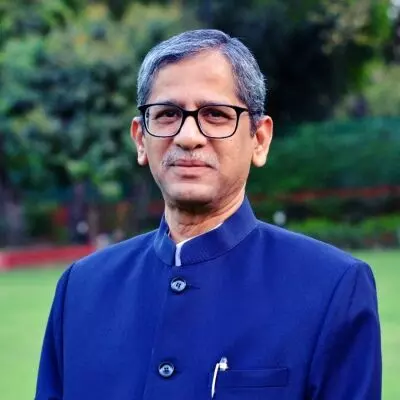
Five crucial cases await decision with CJI Ramana having just 10 days in office
text_fieldsNew Delhi: With only 10 days left in office, Chief Justice N.V. Ramana's decision is awaited on five crucial issues: the political situation in Maharashtra, the Pegasus panel report, the PM's security lapse in Punjab, the attempt by the Maharashtra Wakf Board to replace Attorney General K.K. Venugopal as the case's counsel, the setting up of a bench to hear petitions challenging the Karnataka High Court decision prohibiting the wearing of the hijab in state-run pre-university colleges, as well as appeals of the Citizenship (Amendment) Act and the listing of appeals of the repeal of Article 370, which granted special status to the former state of Jammu and Kashmir.
The fundamental cause of the country's case backlog, according to Justice Ramana, is the failure to fill judicial vacancies and the state of the judiciary's infrastructure. He has also emphasised the need for those from society's weakest groups to have access to justice.
Ramana has minced no words in criticising the government while speaking at public fora and also tried to decide matters of constitutional salience -- on May 11, a bench headed by him put on hold the colonial-era penal provision of sedition, saying the court is cognizant of the integrity of the state on one hand, and the civil liberties of citizens on the other.
The Chief Justice is scheduled to retire on August 26.
Last week, the Chief Justice shot a volley of questions at senior advocate Harish Salve, representing Maharashtra Chief Minister Eknath Shinde, while hearing petitions filed by the Shiv Sena and its rebel MLAs on constitutional issues of split, merger, defection, and disqualification.
On August 4, a three-judge bench headed by him had said that the court would decide on August 8 whether to refer some issues involved in the Maharashtra political crisis to a five-judge constitution bench.
The apex court had also asked the Election Commission of India not to decide the application filed by the Shinde camp for recognising them as the 'real Shiv Sena' and allotment of the party symbol. The matter is likely to come up for hearing soon.
Reportedly, the court-constituted Pegasus panel has submitted its report on the alleged misuse of the Pegasus spyware to spy on journalists, politicians and activists. The committee is headed by former Supreme Court judge R.V. Raveendran. The contents of the report remain confidential. The top court decision on the panel's report is awaited.
On August 3, the Supreme Court agreed to set up a bench to consider a clutch of pleas against the Karnataka High Court judgment, which upheld the right of educational institutions to ban the wearing of hijab in pre-university colleges in the state. While mentioning the matter for listing, a counsel urged the top court to fix a date in the matter, as petitions against the high court judgment were filed in March.
In January this year, the top court had said that an enquiry committee, headed by retired Supreme Court judge Justice Indu Malhotra, will investigate Prime Minister Narendra Modi's security breach in Punjab.
A bench headed by justice Ramana, outlining the terms of reference for the enquiry committee, said, "What were the causes for the security breach for the incident on 5th January 2022? Who is responsible for such a breach, and to what extent? What should be the remedial measures or safeguards necessary for the security of the Prime Minister or other protectees?"
The top court order came on a petition by the NGO, Lawyer's Voice, which was represented by senior advocate Maninder Singh. The petitioner emphasised the importance of protection to the PM of the country and urged the court to constitute an independent committee to probe the matter. The matter has not come up for hearing so far, since then.
On August 2, a bench headed by Ramana expressed discontent with the Maharashtra Wakf Board for attempting to replace Attorney General (AG) K.K. Venugopal as a counsel in the case, in the middle of a hearing on an important question - whether all land donated by Muslims for charitable work would come under Wakf, IANS reported.
The AG had also written to the Supreme Court to take strong exception to the action taken by the Wakf Board.
"All this interference with the counsel who is to represent the parties being removed at the last minute is a serious, uncalled for, and unwarranted attempt to interfere in the due administration of justice by removing counsel representing the parties. This clearly is an act of contempt of court," the AG said in his letter to the registrar (judicial). The top court is likely to take up this matter soon.
In April this year, the Supreme Court said a reconstituted five-judge constitution bench would deal with the batch of petitions challenging the abrogation of Article 370, as one of the judges on the bench, Justice R. Subhash Reddy, had since retired.
The reconstructed panel may hear the case after the summer break, according to a bench led by Chief Justice Ramana. The matter, however, has not been listed as yet.
The top court has given notice on petitions contesting the legality of the Citizenship (Amendment) Act in December 2019. The highest court declined to provide Interim relief in the case in December 2019. The case has been unresolved for the past two years.






















